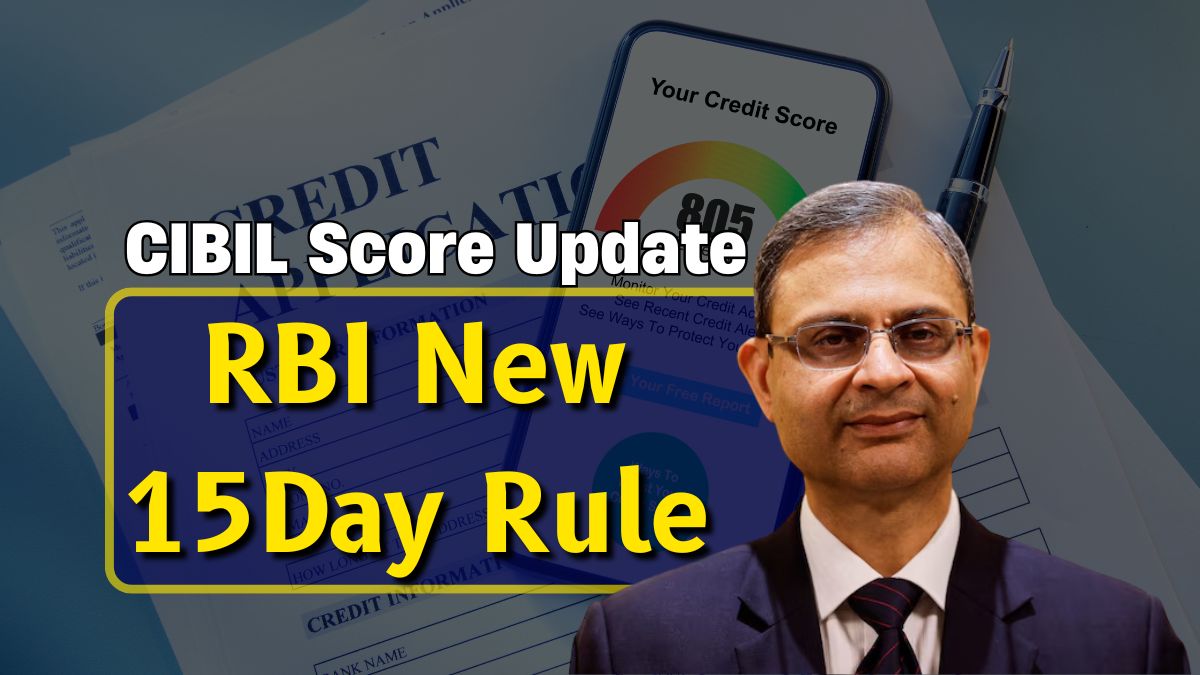Have you ever repaid a loan on time, only to find your CIBIL score still showing old data? It can be frustrating especially when you’re planning to apply for another loan or credit card. Thankfully, the Reserve Bank of India (RBI) has heard this concern and introduced a new rule that brings relief to borrowers across the country.
Let’s walk you through what’s changed, how long it now takes to update your credit score, and what it means for your financial future.
What Is CIBIL Score and Why It Matters?
Your CIBIL score, also called a credit score, is a three-digit number ranging between 300 and 900. It reflects your creditworthiness—basically how likely you are to repay loans. The higher your score, the better your chances of getting approved for:
- Personal loans
- Home loans
- Credit cards
- Car loans
- Even rental agreements or phone EMI plans
A score above 750 is usually considered good, while anything below 600 can make it harder (or costlier) to borrow money.
New RBI Rule: CIBIL Score to Be Updated Every 15 Days
Earlier, many customers had to wait weeks or even months to see their CIBIL score update after repaying a loan. This often created confusion—and in some cases, missed opportunities for new credit.
But as per RBI’s new directive, all banks must now report customer credit data to credit bureaus (CICs) every 15 days. That means:
Your CIBIL score will be updated within 2 weeks after you repay a loan.
How This Change Helps You
Here’s what changes for borrowers like you:
| Before (Old System) | After (New RBI Rule) |
|---|---|
| Score update could take 30–60 days | Score must be updated every 15 days |
| Lack of clarity on loan status | Faster reflection of loan repayment |
| Delayed loan approvals | Quicker processing of new loan requests |
So whether you’re clearing your credit card dues or closing a personal loan, your improved credit behavior will now reflect faster—giving you better chances for future loans at lower interest rates.
Banks Must Strictly Follow These Guidelines
RBI has issued clear instructions to all financial institutions and lenders. They must:
- Send updated loan data to Credit Information Companies (CICs) every two weeks
- Ensure accuracy in the data being reported
- Allow customers to track their updated reports easily
If banks fail to follow this timeline, RBI may take regulatory action.
How to Check If Your CIBIL Score Has Been Updated
You can check your latest credit score online through:
- CIBIL Official Website
- Your bank’s net banking portal (many offer free monthly reports)
- Fintech apps like Paytm, PhonePe, or Cred
What CIBIL Score Is Considered Good?
| CIBIL Score Range | What It Means |
|---|---|
| 750–900 | Excellent – Eligible for best offers |
| 650–749 | Fair – May get loans, but not easily |
| 600–649 | Risky – High interest rates likely |
| Below 600 | Poor – Loan rejection likely |
FAQs: Your Common Questions Answered
Q. How soon will my credit score reflect after full loan repayment?
As per RBI’s new rule, your updated score should reflect within 15 days of repayment.
Q. What if my score doesn’t update after 15 days?
Raise a complaint with your bank first. If unresolved, you can file a grievance with the Credit Information Company or RBI’s Consumer Grievance portal.
Q. Can I improve my CIBIL score faster with this rule?
Yes. With more frequent updates, positive changes (like on-time payments or loan closures) will reflect quicker.
Q. Do I need to pay to get my updated score?
You’re entitled to one free credit report per year from each bureau. But many apps and banks offer monthly checks for free.
